An art workshop in Cardiff showed people how to creatively reuse plastic to decrease pollution, which is killing marine wildlife.
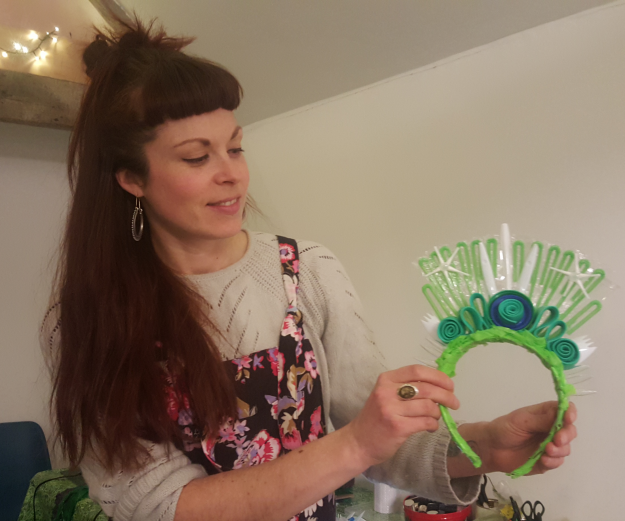
Environmental activists invited people to use discarded plastic to create masterpieces at an underwater-themed art class last week in Cardiff.
The event was hosted by Green City, a community organisation that runs workshops that are centred on conservation and protecting the environment.
Rebecca Clark founded the company in 2012: “Green City is about sustainability and looking after the environment in an engaging, fun, accessible way.”
“It’s not just about learning sustainable skills; it’s about building community and friendships. In this day and age everything’s online and we’re less likely to meet up face to face. It’s really important to bring people together.”
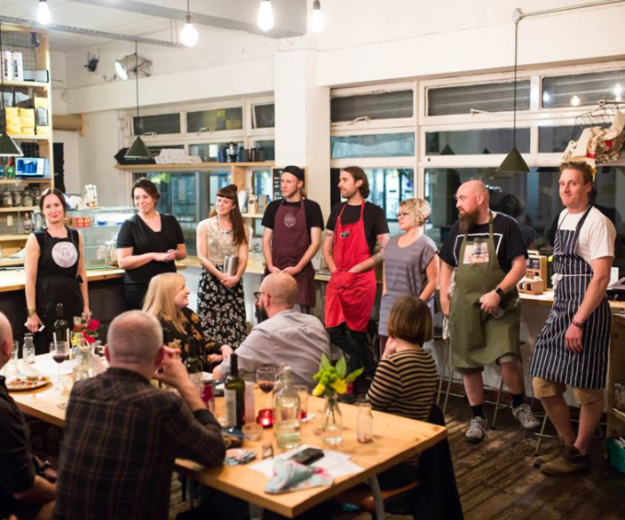
Workshops cover diverse topics from carpentry and spinning yarn, to fixing bicycles and making compost.
Currently, the organisation is concerned with tackling the issue of plastic pollution.
Researchers say that in 30 years’ time, there will be no more fish in our oceans. Inspired by Blue Planet II, a nature documentary series on marine life, Clark was compelled to start a movement called #savethemermaids to draw attention to the plight of sea creatures in response to discarded plastic building up in water sources.
“I was trying to raise awareness about the severity of the problem [of plastic in the ocean] but in a way that’s family friendly.”
“Instead of directly using sea creatures, that are severely injured and killed by plastic, we used mermaids to bring a human link to it. People can relate to them in a strange human-fish hybrid way.”
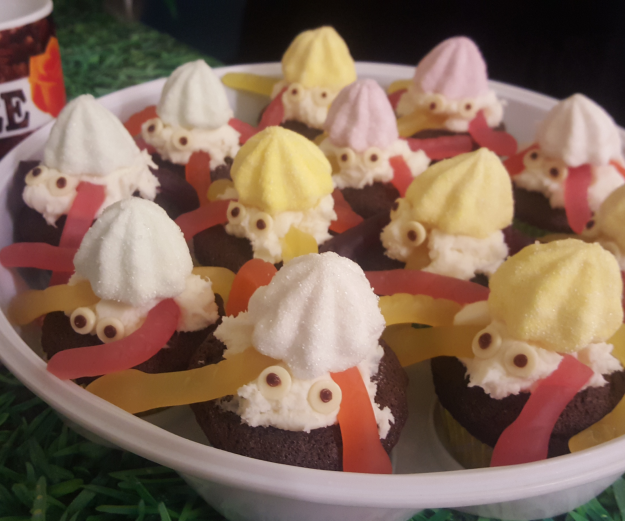
Plastic bottles can remain in marine environments, disintegrating into smaller pieces for up to for 450 years. An estimated 12 million metric tons of plastic waste enter the world’s oceans every year, with 79% of discarded plastics remaining in the environment. This results in water pollution and harm to wildlife.
At this moment in time, more than 86% of all sea turtle species are affected by plastic pollution.
“When plastic gets into the ocean, sea creatures start eating it, and it can wrap around their necks, strangle them and kill them when it gets into their stomachs,” says Clark.
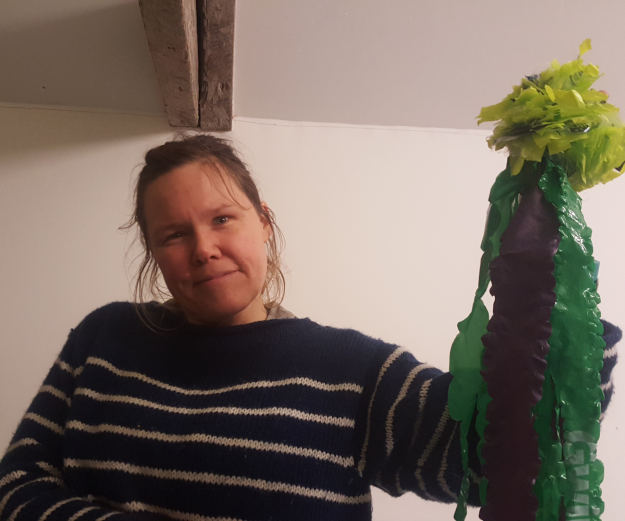
Perhaps most alarming is the possible effect that this will have on humans.
“When something like a plastic bottle makes its way into the ocean and breaks down into microscopic pieces, these pieces can be eaten by tiny organisms and work their way up the food chain and eventually come back to us. So we’re ingesting the plastic into our bodies, and it’s damaging us.”
A major concern is human exposure to chemical compounds involved in plastic production. Some of these compounds can enter the body through the nose, mouth or skin and have been shown to have negative health effects.
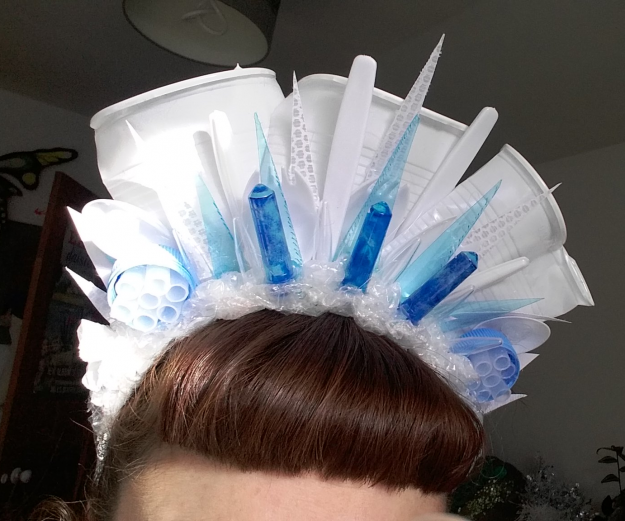
The #savethemermaids campaign will officially begin on March 25 at the Cardiff Bay run, and masterpieces created at the workshop will be on display at stands at the event.
Welsh mineral water company Brecon Carreg are collaborating with Green City for this campaign.
“We wouldn’t normally work with a company that isn’t environmentally friendly, unless they wanted to change the way they operate,” says Clark.
“Brecon Carreg is considering the option of not using single-use plastics for their water bottles.”
Talking about how other people can change their lifestyles to live more sustainably, Clark says: “We forget about the small things, like the plastic in the middle of cotton buds, plastic straws.”
“These should be easiest to phase out. You can replace cotton buds with paper ones and you can buy metal straws you can take around with you.”
Companies are becoming increasingly environmentally conscious and are actively taking measures to reduce plastic consumption, such as charging fees for bags at supermarkets and selling re-usable bags.
Half of the world’s plastic is used once and then discarded.
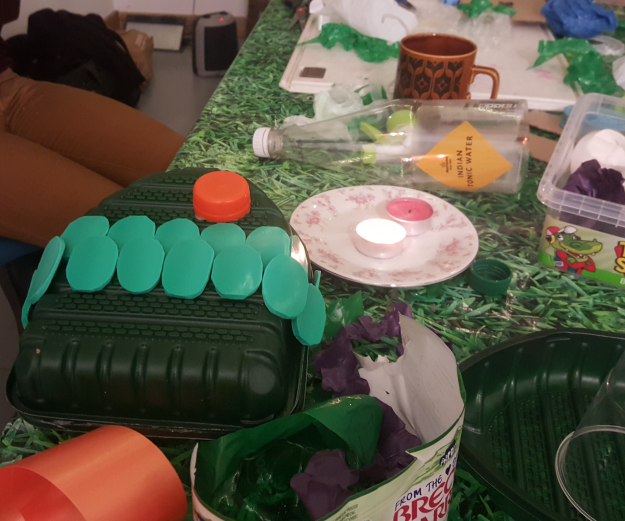
Vickie McClure who has run some of Green City’s workshops feels that everybody has a responsibility to look after the environment: “People think “it’s not my job” to pick litter, but it’s all of our jobs.”
Clark agrees, saying that there are eco-friendly solutions to fit with all lifestyles: “If you’re someone that loves takeaway coffee, get yourself a bamboo or recycled coffee cup that you can use again. It’s about finding things that you can change within your home on a small scale.”
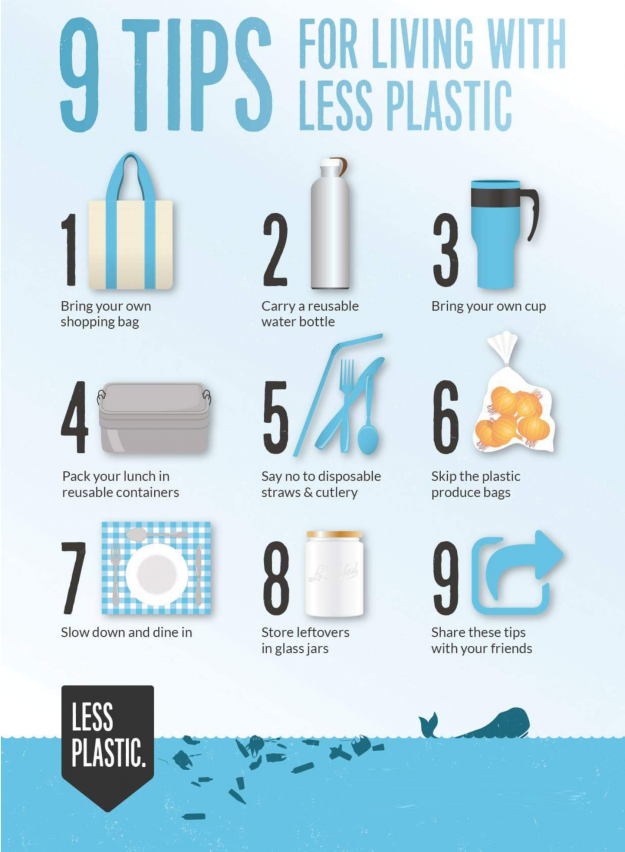
Feeling that Cardiff is working towards an environmentally friendly future, Clark says: “There are a lot of litter picks happening and that is raising awareness, helping to get people involved.”
A number of running events will feature #savethemermaids stalls where people will be given advice on how they can make combat plastic pollution.
The final #savethemermaids event will be the Cardiff half marathon in October.
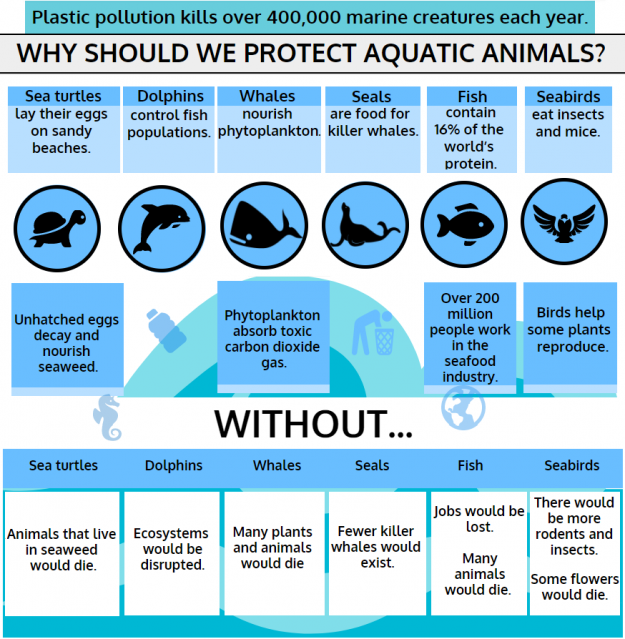
Researchers say that by 2048, we could run out of fish
79% of plastic waste remains in our natural environment
12 million metric tons of plastic is dumped in our oceans
Statistics of plastic debris in oceans
The problem of single-use plastic
86% of sea turtles are threatened with extinction because of plastic waste
